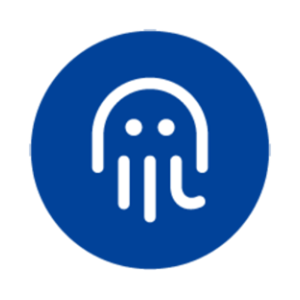
Octopus Network
Octopus Network Preisumrechner
Octopus Network Informationen
Octopus Network Märkte
Octopus Network Unterstützte Plattformen
| ERC20 | ETH | 0xf5cfbc74057c610c8ef151a439252680ac68c6dc | 2021-08-04 | |
| ERC20 | NEAR | f5cfbc74057c610c8ef151a439252680ac68c6dc | 2025-11-13 |
Über uns Octopus Network
The OCT token, native to the Octopus Network, serves several critical roles:
Security Provision: OCT holders can stake their tokens to provide security for appchains, receiving the appchain's native token in return. This staking mechanism establishes a market dynamic where OCT holders supply security, and appchains demand it, paying rent in their native tokens.
Validator Roles: Validators in the network stake OCT tokens and establish nodes to validate appchains. They are rewarded with the appchain’s native token as block rewards. The network supports validators with tools for node deployment, management, and economic analysis.
Delegating Tokens: Delegators who don't run nodes can still participate by delegating their OCT to active validators. This process allows them to share in the block rewards paid out by appchains without directly running a node.
Governance: OCT holders have governance rights in the Octopus Network. The Octopus DAO (Decentralized Autonomous Organization) Council, consisting of a maximum of 100 members, allows token holders to influence the governance of the network. This includes making decisions about network development, task forces, and operations.
The Octopus Network was founded by Louis Liu and unveiled in October 2021. Liu and his team have been committed to enhancing the interests of OCT token holders and the Octopus community. The development of Octopus Network 2.0, an advancement of the network’s infrastructure, was a strategic initiative aimed at expanding the network's capabilities and broadening its appeal.
NEAR Protocol is a sharded proof-of-stake (PoS) blockchain that emphasizes scalability and usability. NEAR is often referred to as a ready-made scalability solution for existing Ethereum dApps, but it is equally capable of handling a suite of other types of decentralized solutions — such as appchains. The Octopus Network chose to build on NEAR because it offers a more cost-effective, scalable, user-friendly, and interoperable L1 solution for building appchains.